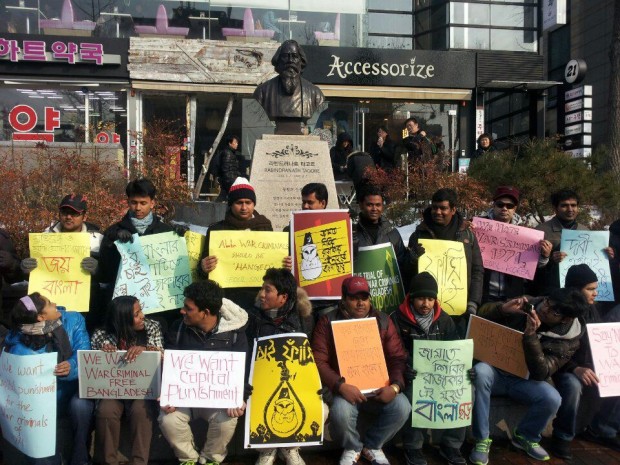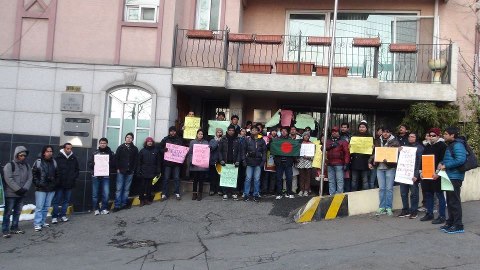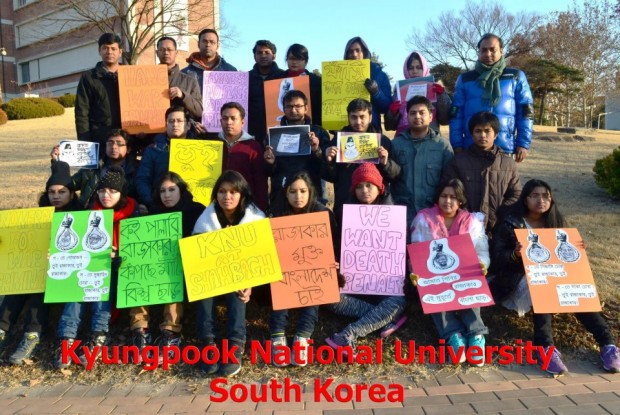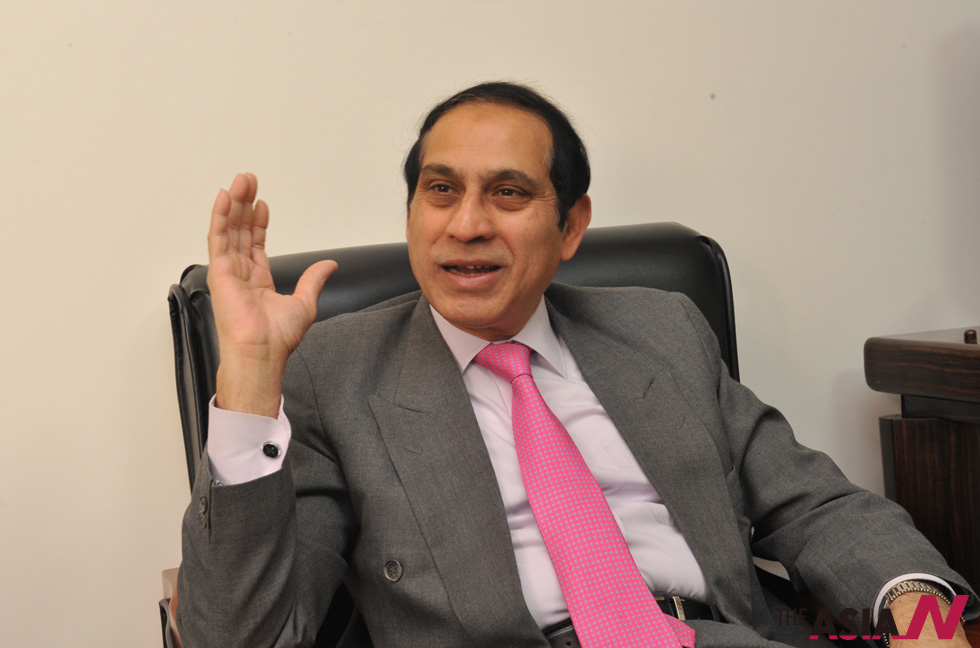
Bangladesh community in Korea demands death for 1971 war criminals
Last Sunday, February 10, at 3 pm on the Lunar New Year holiday, a group of 50 to 70 Bangladesh residents participated in a demonstration in Daehakro, Seoul, Korea, in front of a statue of Rabindranath Tagore, the renowned Bengali poet who wrote the national anthems of both Bangladesh and India. They came from all over Korea: Busan, Daejeon, Gwangju, Ansan, and Seoul and included businessmen, teachers, families, workers and many students.

They were protesting against the Bangladeshi war crimes tribunal’s decision on February 5 to give the 1971 Liberation War criminal, Quader Mollah, a life-term sentence instead of the death penalty even though he was found guilty of massive genocide and gang rape.
“We demand that Quader Mollah receives the death penalty. He should receive proper punishment for the horrendousness of his crime,” said Jalal Ahmed, a postdoctoral researcher at Konkuk University and one of the organizers of the demonstration.
During the 9-month liberation war against Pakistan before Bangladesh gained its independence in 1971, almost 3 million peoples were killed and 200,000 women were raped by the Pakistan army.
A certain group in Bangladesh called the ‘Rajakars’ helped the Pakistani army to carry out the genocide, which included a large number of Bangladeshi intellectuals such as political leaders, scholars, scientists, journalists, university professors, etc.
In 2010, Bangladesh established the war crime tribunal to try the accused war criminals. Most of the people on trial are members of the Jamaat-e-Islami, a social conservative and Islamist political party.
“The war crime trials will continue to investigate and try the accused criminals. We want to make sure the government takes proper action in the future trials of these criminals, “ Ahmed explained.
The group of Bangladesh citizens held their peaceful demonstration from 3pm to 4 pm. They held up posters and signs and handed out leaflets in Korean to Koreans passing by.
After the one-hour demonstration in Hyehwa, the group moved to the Bangladesh Embassy in Dongbinggo-dong, where they sang the national anthem and read out loud their proposal.

“Since the embassy was closed, a few of us came back on February 13, and submitted our proposal for a fair trial to the ambassador’s personal secretary.” Ahmed said.
“An inner calling, a call from my motherland urged me to be part of organizing this demonstration. Even though I’m far away from my homeland, I was happy to have done something. I let the people know I am supporting them and that I also feel strongly about bringing justice to the war criminals.” he shared.
On February 11, 30 Bangladesh expatriates, most of who were students, gathered in Kyungpook National University, Daegu and held a similar demonstration.

Large scale demonstrations have been taking place in Bangladesh and demonstrations by the overseas Bangladesh community have been held in other places such as the U.S., Canada, Australia and Japan.
On February 10, the sixth day of protests in Bangladesh against the light sentence given to war criminal Quader Mollah, the law minister said that Bangladesh is planning on amending the law to allow for the government to appeal for tougher penalties for war criminals.
“If the tribunal’s future decisions do not meet our expectations, we do plan on carrying out future demonstrations either at the end of February or early March.” he added.




